June 6, 2025 | 16:43 GMT +7
June 6, 2025 | 16:43 GMT +7
Hotline: 0913.378.918
June 6, 2025 | 16:43 GMT +7
Hotline: 0913.378.918
At the seminar titled "Institutions, Planning – Opportunities for Developing a Blue Ocean Economy” conducted on the morning of June 6 in Dong Hoi City (Quang Binh Province), Prof. Dr. Mai Trong Nhuan underscored the vital role of national ocean spatial planning in shaping a sustainable and integrated ocean economy. According to him, comprehensive and multi-sectoral national ocean planning, derived from an overarching master plan, will serve as a strategic framework to guide the exploitation and sustainable use of ocean and island resources. This integrated approach guarantees coherence across regional development strategies and fosters synergies among sectors.
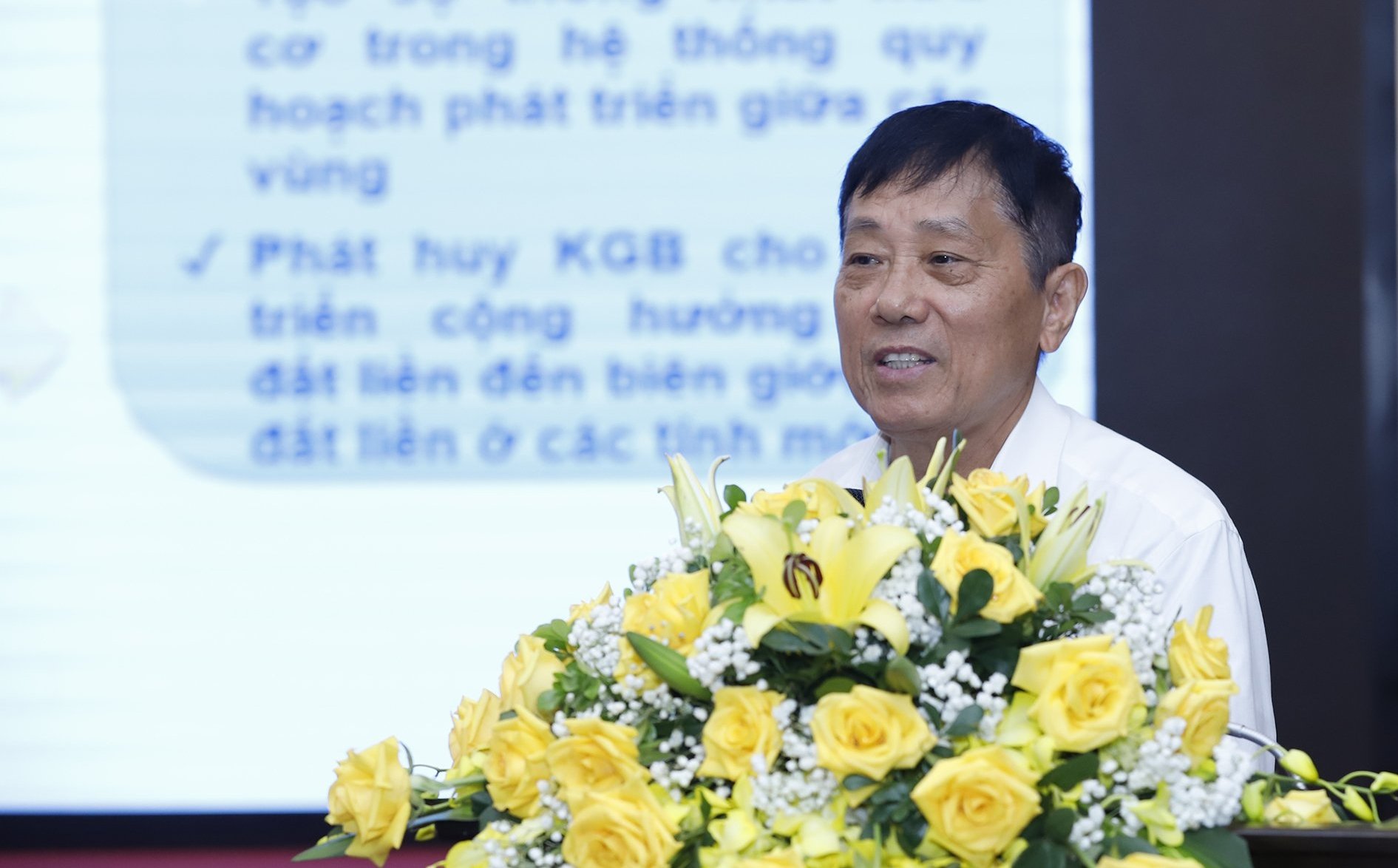
Prof. Dr. Mai Trong Nhuan, former Director of Vietnam National University, Hanoi, spoke at the conference. Photo: Khuong Trung.
However, marine spatial planning must align with the objective conditions of ocean ecosystems, comply with extant legal frameworks, and respect international maritime delimitation agreements signed by Vietnam.
This adherence, Prof. Nhuan noted, is essential for Vietnam to achieve its 2030 development targets, laying the groundwork for rapid and sustainable growth, building a robust blue economy, creating effective livelihoods for coastal communities, and reinforcing national defense, sovereignty, diplomatic engagement, and environmental stewardship.
By 2030, the blue economy is projected to contribute 10% to the national GDP. The economies of Vietnam’s 28 coastal provinces and localities are expected to account for 65–70% of the country’s GDP, with per capita income in these areas exceeding the national average by 20%. The plan also envisions the expansion of habitable islands where conditions permit, alongside the development of coastal urban systems. On the social front, the blue economy will help lift the Human Development Index (HDI) of coastal provinces above the national average. All inhabited islands are to be endowed with essential socio-economic infrastructure, including electricity, freshwater supply, communications, healthcare, and education.
In terms of environmental objectives, the plan emphasizes the sound management and preservation of ocean and island ecosystems. It advocates for sustainable resource use within the carrying capacity of ecosystems and calls for expanding ocean and littoral protected areas to at least 6% of the country’s marine territory. Key measures include restoring mangrove forests and implementing stringent controls on ocean pollution, especially plastic waste.
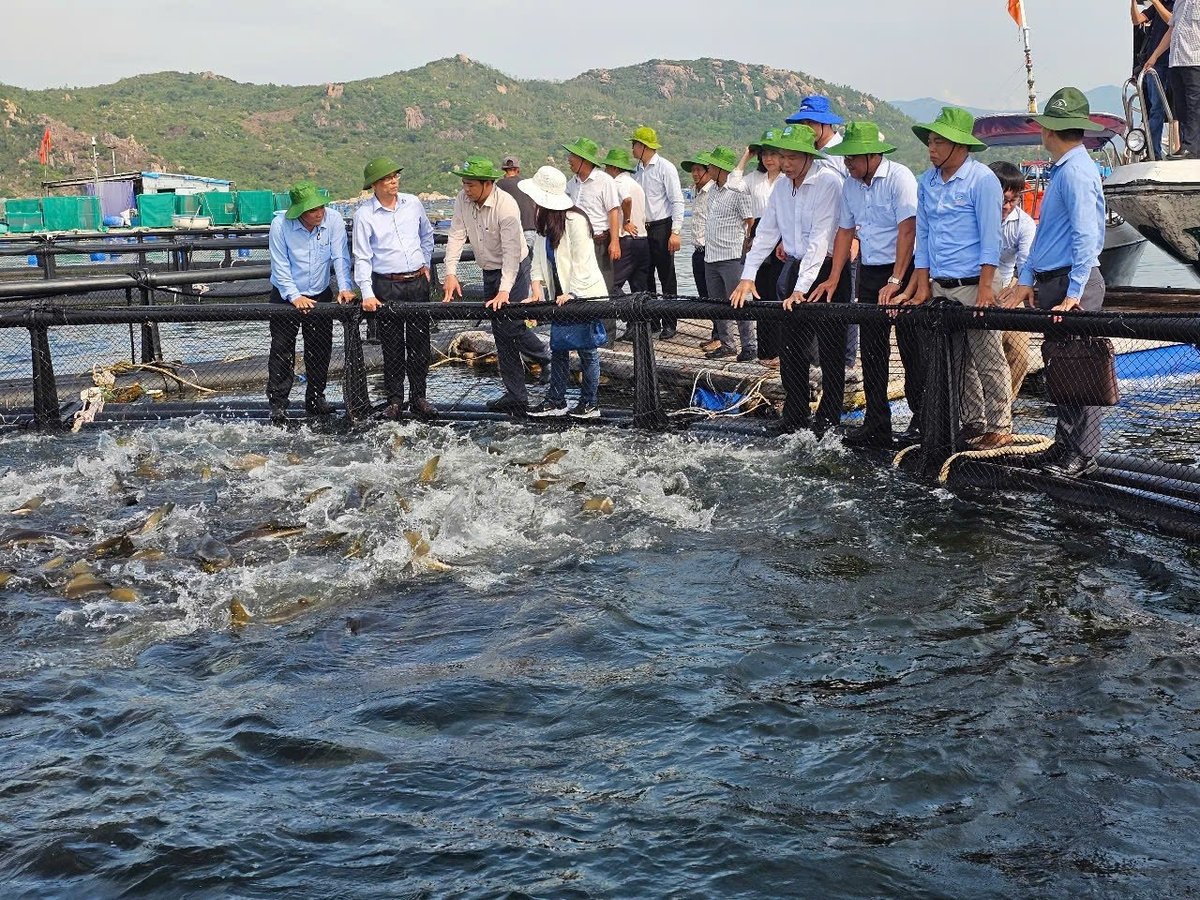
It is necessary to develop marine aquaculture in a green direction, with new and advanced technology associated with environmental protection. Photo: Kim So.
Prof. Nhuan emphasized the need for targeted reforms and innovative strategies to achieve these ambitious objectives. Initially, Vietnam needs to enhance its institutional frameworks and resource mobilization mechanisms to facilitate the effective execution of its plans. This will stimulate the development of modern, integrated littoral and island infrastructure, such as multipurpose maritime facilities and logistics networks.
The integration of the development of smart, green island cities with the promotion of sustainable, responsible, and innovative ocean and island tourism is equally important. Vietnam must also expand its ocean fisheries economy by emphasizing low-carbon, circular, and green models that exhibit exceptional resilience. Preserving maritime culture and conserving the ocean necessitates prioritizing offshore aquaculture and fisheries.
The plan also promotes the rapid, sustainable development of pure, renewable ocean energy, with offshore wind power serving as the focal point of the nation's energy security strategy. To inform development decisions, it is also necessary to conduct a comprehensive assessment of the potential for offshore hydrocarbons, solid minerals, and seabed construction materials in Vietnam.
In order to preserve biodiversity and restore critical ecosystems—particularly coral reefs, seagrass beds, mangroves, and coastal shelterbelts—Vietnam's future blue economy must expand the extent and scope of protected ocean areas. Establishing a genuinely green ocean economy necessitates maintaining and enhancing ecosystem services.
The country is also encouraged to promote regionally tailored tourism models that are consistent with the distinctive cultural heritage and geography of each locality. The prioritization of developing port systems and logistics chains is necessary to enhance the connectivity of both domestic and global markets, as well as to expedite cargo movement.
To ensure environmental protection, aquaculture must transition to environmentally friendly, technologically advanced practices. Offshore aquaculture and sustainable exploitation that facilitate stock regeneration are to replace coastal fishing progressively. It is imperative to firmly promote the growth of renewable ocean energy industries, including offshore wind, hydrogen, and solar.
As part of a diversified and resilient maritime economy for the future, Vietnam should invest in emerging ocean economic sectors with high development potential, including marine pharmaceuticals, ocean medicine, ocean chemistry, and advanced materials.
Translated by Linh Linh
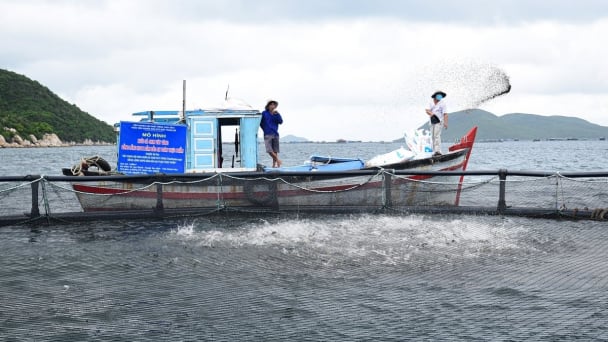
(VAN) Vietnam’s aquatic resources decreased from over 5 million tons in the period 2000-2005 to just over 3.9 million tons in the period 2016-2020.

(VAN) The U.S. Congress recognizes Vietnam's role as a reliable and dynamic economic partner in the Asia-Pacific region.
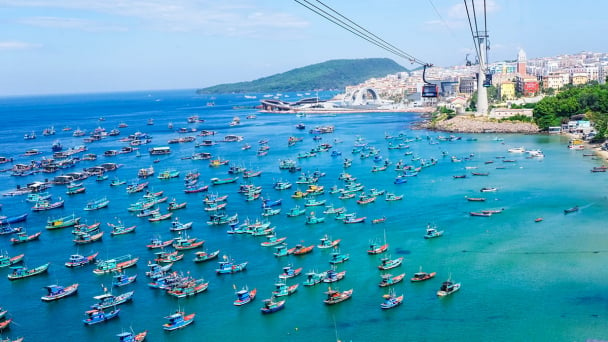
(VAN) Vietnam Sea and Island Week 2025 is a powerful call to action for connecting technology and unlocking policies, aiming towards a modern, sustainable blue ocean.
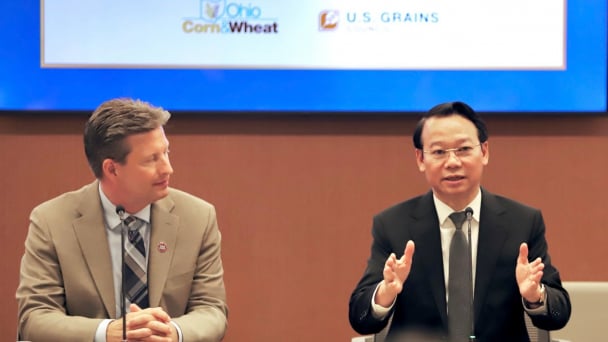
(VAN) With its rapidly growing agricultural economy, Vietnam has become a top destination for U.S. businesses seeking to strengthen their presence in Southeast Asia.
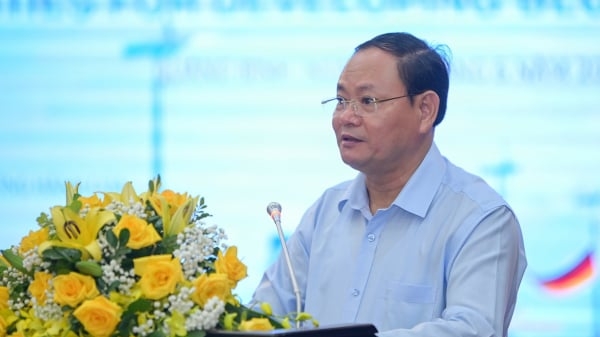
(VAN) The workshop in Quang Binh is expected to pave the way for developing a blue ocean economy, driven by institutional reforms, planning, and policies such as Decree 65 on offshore wind power.
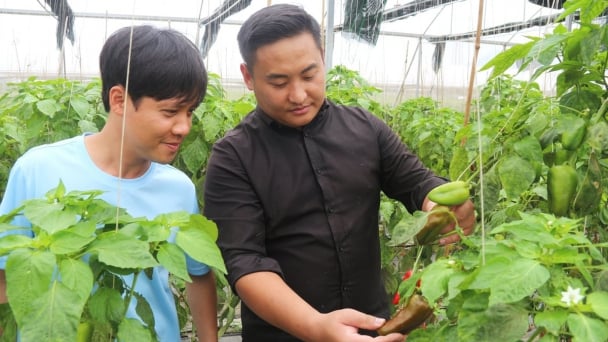
(VAN) By applying science and technology and embracing natural farming practices, Dako Farm’s agricultural products meet the stringent standards required for export to the South Korean market.